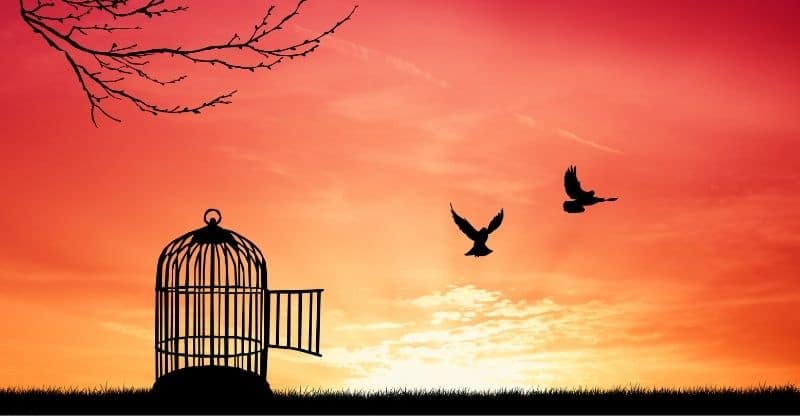Adapted from the writings of Rabbi YY Jacobson based on the Maharal’s teachings
We are blessed to live in the United States where we can celebrate our Judaism. However, the Jewish people are still in exile. Jews have been celebrating Passover, their freedom, regardless of the lack of freedom around them. They celebrated during the inquisition and during the holocaust. Obviously, the celebration of freedom is not simply commemorating the lack of oppression, the ability for frivolous self-indulgence, or getting rid of the yoke of responsibility.
In Egyptian society one was not allowed to dream of self-determination; everything was controlled by the Pharaohs. The freedom of Passover changed the way we think about ourselves. We have a choice to do the right thing, or the opposite. We can choose our future. We can celebrate our ability to be ourselves even when circumstances make it seem impossible. Why? Because we are free.
To quote Viktor Frankl: “Everything can be taken from a man but one thing: the last of the human freedoms—to choose one’s attitude in any given set of circumstances, to choose one’s own way.”
One of the responsibilities of the Jewish people was, and is, to impart this discovery to all of humanity. We must preserve the freedom and dignity of every individual under the sovereignty of a free G‑d. A G-d who desired free human beings who choose to construct a world founded on
1) freedom,
2) the dignity of the individual and
3) the moral calling to build a fragment of heaven on planet earth.
Our freedom from the Egyptian bondage, read about in this week’s Torah portion, forces us to see ourselves inherently as free. Our very being must cry out in protest against tyranny and cruelty and remain obsessed with the belief that the future must be different. Redemption is yet to come and that a society in which evil and corruption rules cannot endure.
Reading about the Jews leaving Egypt reminds us of the awareness and yearning of freedom, and the conviction that freedom is the innate right of every human being.
Man yearns to reflect G‑d. Man, created in G‑d’s image, yearns to be utterly divine, hence utterly free. It is this G‑dliness inherent in a human being that drives us to constantly challenge and transcend the limits imposed on us, including even the limits of our own nature.
Have a good Shabbos,
Good Shabbos!
Rabbi Mendel Schusterman
Thanks to my brother, Rabbi Kushi Schusterman, of Chabad Bel Air, Maryland for sharing the above thought.


Recent Comments